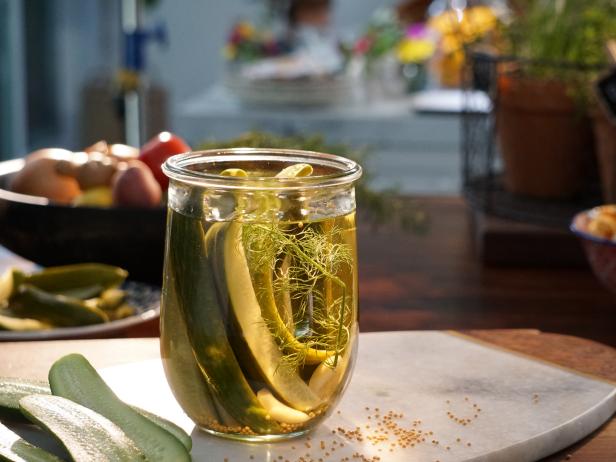
Many people cite the health benefits of pickles, pointing out that they can help with weight loss, are filled with healthful antioxidants, and can fight some kinds of cancer. Others cite high sodium content and reports of increased risk of stomach cancer as reasons for caution. Here’s all you need to know to decide whether you want to munch or pass on the next dill you see!
How Are They Made?
Pickling has been used for thousands of years to preserve food beyond the growing season. Most pickling recipes call for salt, vinegar, and seasoning. In parts of Asia, oil is also used. While pickling cucumbers may be the most common type of pickled food in North America, around the world all kinds of fruits and vegetables, and even meats, are pickled.
The Upside
Packing in the Probiotics
Pickling is a form of fermentation. When vegetables and fruits are fermented, healthy bacteria help to break down the hard-to-digest cellulose in foods, as well as some of the natural sugar. This is why some people who are lactose intolerant may be able to eat yogurt. These healthy bacteria help to keep fermented food safe and less likely to spoil, and can also help increase the good bacteria in your gut when eaten.
While pickles don’t have a lot of vitamins and minerals themselves, eating a pickle with a meal can boost the probiotic content of any meal you eat.
Antioxidant Protection
The natural antioxidants found in fruits and vegetables help in the fight against free radicals. Free radicals are unstable chemicals that are formed naturally in the body and can lead to cell damage and problems such as heart disease and cancer. While cooking any food may break down some of the heat-sensitive nutrients, preserving vegetables through pickling preserves their antioxidant power.
The Downside
Stomach Cancer Risk?
The findings aren’t all good, however. Extremely salty pickled foods may put you at risk for stomach cancer. In Turkey and Japan, where pickled foods are very popular, gastric cancer is also significantly higher.
Recently, a team of doctors in Turkey looked at the diets of gastric cancer patients and discovered that while they ate significantly less bread, cereal, milk and orange juice, they ate a lot more pickles than the cancer-free participants in the survey.
Blood Pressure Woes
Preserving any kind of food requires the addition of salt, and salt makes up about 5 percent of most pickling recipes. According to the U.S. Department of Agriculture (USDA), one dill pickle can contain between 500-1100 milligrams of sodium — that’s almost half of the recommended sodium allowance for an entire day!
Not all pickles are saturated in salt, however. In fact, studies have shown that a certain kind of Japanese rice bran pickle, nukazuke, contains enzymes that can contribute to the prevention and treatment of high blood pressure.
To Pickle or Not to Pickle
That is the question. With all of their health benefits, it seems like pickles can definitely be beneficial when eaten in moderation. The solution to reducing the risk factors may be as simple as making your own pickles at home — it’s easy to do!
Pickling your own vegetables and fruits can help you preserve the produce in your fridge that’s about to go bad, as well as bring new flavors to your food. So what are you waiting for? Grab a jar and get pickling!


